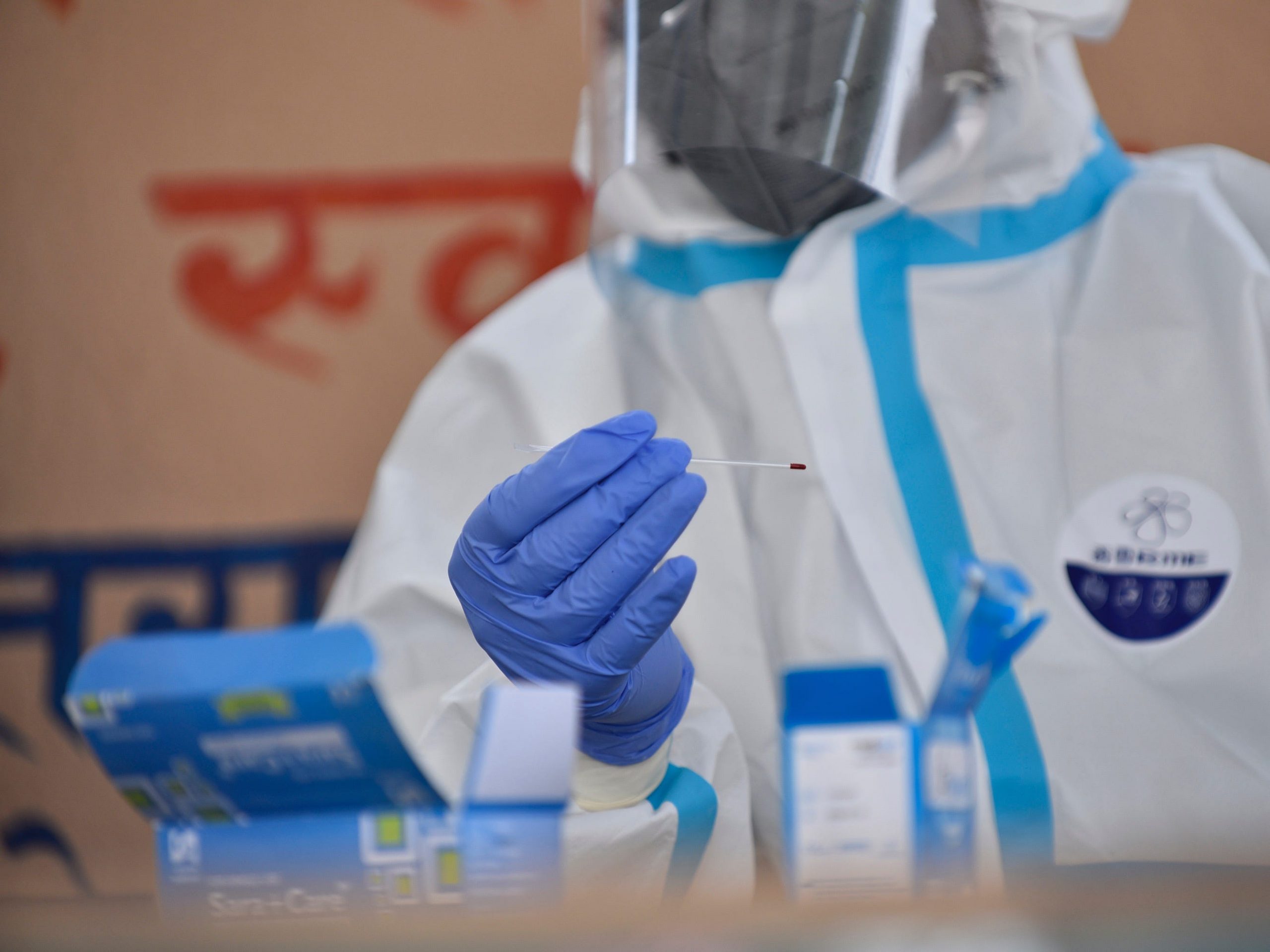- A widely-cited preprint study from April concluded that the coronavirus has a much lower death rate than previous believed – around .12% to .2%, similar to the flu.
- But a recent BuzzFeed News investigation found that the study was funded in part by David Neeleman, the founder of JetBlue Airways, who has opposed national lockdowns out of concern for his business.
- The funding was not previously disclosed. The authors dismissed concerns about a potential conflict of interest and other issues from the study, such as the accuracy of its antibody tests, Buzzfeed reported.
- Although the study was revised two weeks after it was made public, it has continued to fuel theories that fears of the coronavirus or its death toll have been overexaggerated.
- Visit Business Insider’s homepage for more stories.
Cities and states have begun to tentatively get back to business across the US. But as the hardest-hit areas continue to debate whether it’s too early to reopen parks, restaurants, and schools, research on the impact of the coronavirus continues to be fraught with controversy.
Now, a whistleblower complaint has called into question a major Stanford University study which suggested the coronavirus death rate could be much lower than reported, comparable to the seasonal flu.
A recent BuzzFeed News investigation from reporter Stephanie Lee has found that the study was in part funded by David Neeleman, the founder of JetBlue Airways and an outspoken opponent of continued coronavirus lockdowns.
Neeleman’s contributions to the research were not disclosed, according to a whistleblower complaint filed with Stanford University and obtained by BuzzFeed. Other potential concerns with the study – including questionable accuracy of the antibody tests it relied on – were dismissed, BuzzFeed reported.
Neeleman denied that influenced the study's process or results, and a representative from Stanford said the university was reviewing the complaint, according to Buzzfeed.
SCOOP: I obtained a whistleblower complaint about Stanford's COVID-19 study.
Turns out JetBlue's founder, a critic of the economic shutdowns, helped fund it.
And John Ioannidis and others allegedly ignored internal scientists' concerns about the test. https://t.co/dExNhZTVX0
— Stephanie M. Lee (@stephaniemlee) May 15, 2020
The study was cited as evidence that coronavirus fears were exaggerated, and the death rate was closer to the flu
The preprint from Stanford University researchers found that the number of coronavirus infections in Santa Clara, California was up to 85 times higher than previously estimated. Based on the results of testing 3,300 residents of Santa Clara, they concluded that between 2.5% and 4.2% of Santa Clara County residents would have antibodies for the virus.
From this, researchers suggested that the death rate from coronavirus could be around 0.12% to 0.2%, comparable to the flu.
The study was first posted on April 17 as a preprint, meaning it had not yet been peer-reviewed. It was revised April 30 after criticism from other scientists, according to the New York Times.
The Times reported that the Stanford preprint was widely shared by conservative commentators as evidence that the "hysteria" around coronavirus deaths was based on exaggerated estimates. Many also argued that the lower death rate could justify re-opening the nation's economy.
JetBlue's founder gave $5,000 to the research while advocating for the economy to reopen, BuzzFeed reported
Neeleman wrote in the Daily Wire that the findings of the Stanford study could be a "game changer" for efforts to reopen the economy sooner, based on the idea that a majority of COVID-19 cases have mild or no symptoms. He noted that he personally knew the researchers involved.
The whistleblower complaint - which includes screenshots of emails - alleges that Neeleman personally sought out the researchers because they shared his opinion that the virus was less deadly than believed, BuzzFeed reported, and funded their research.
According to BuzzFeed, Neeleman confirmed that he had made a $5,000 donation to the study but denied that he had influenced the study's design and results, or otherwise put any financial pressure on researchers.
Other concerns with the study, including about inaccurate antibody tests, were dismissed according to a whistleblower
The complaint also references concerns about potential accuracy issues with the antibody test used in the study.
The presence of antibodies can help determine whether or not a person has been infected with coronavirus - however, many of the tests used to detect antibodies are inconsistent and prone to false positives, meaning they could indicate someone has antibodies when in fact do not. The results of the test can vary widely based on the type of test and at what point during an infection a person is tested, Business Insider previously reported.
An infectious disease expert was consulted to evaluate the tests used in the Stanford study. The expert expressed concern that the test "performed very poorly," and later declined to be included in the study because of those concerns, BuzzFeed reported.
Another pathologist, too, tried to voice concerns about the test's accuracy, particularly about the risk of false positives, and recommended that the patients in the study be re-tested. The study was submitted online without additional testing, BuzzFeed reported.
Stanford Medicine is reportedly also looking into the complaint and hasn't yet respond to Business Insider's request for comment.
A spokesperson Julie Greicius told Buzzfeed, "Stanford Medicine is aware of serious concerns related to the Santa Clara County seroprevalence study."
"The integrity of Stanford Medicine's research is core to our mission," Greicius said. "When we receive concerns such as this, they are taken extremely seriously."
See also:
Coronavirus deaths in Italy and US could be up to double the official counts, new research shows
